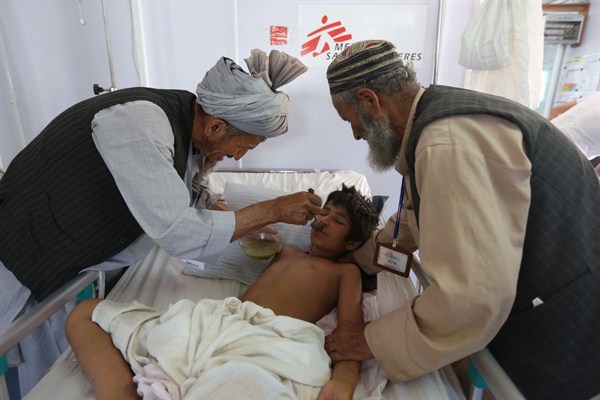In the wake of the U.S. bombing of a hospital in Kunduz, there is a natural inclination to be critical of the entire U.S. military endeavor in Afghanistan. There is an even more natural inclination to want the United States to pull back from the fight there. But we should also interrogate such impulses: Is that policy best for the United States or even best for Afghanistan?
Coming from me that might surprise some people. I have often harshly criticized the apparent reflex among some Washington pundits and policymakers to embrace the use of military force as a panacea to U.S. foreign policy challenges.
Moreover, a number of years ago, when I used to write about U.S. policy in Afghanistan on practically a daily basis, I didn’t have much positive to say about it, and for good reason. At the time, U.S. policy in Afghanistan was something of a disaster—a diversion of resources and soldiers to an ambitious counterinsurgency mission the U.S. couldn’t win and, frankly, didn’t need to.

